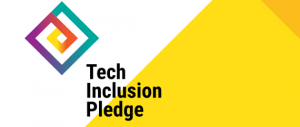(Akiit.com) Three Trillion. Yes, $3 trillion is the value of the top five U.S tech companies.
Zero. Yes zero, is the estimated median wealth of Black Americans by 2053 if current trends continue.
America, we have a problem.
The Congressional Black Caucus (CBC) launched CBC TECH 2020 in May 2015 to bring together the best minds in the tech, non-profit and public sectors to increase African American inclusion at all levels of the industry. In August 2015, we went to Silicon Valley to press the case with tech leaders.
Last week, we went back.
Unfortunately, we found the tech industry’s inclusion efforts are sliding back as well.
We visited 8 tech companies, met with Black venture capitalists, tech employees, and nonprofit organizations working to build the pipeline.
Our assessment is clear: recruiting Black tech talent is an item on most tech companies’ to-do list, but certainly not near the top. Even worse, creating an environment where Black employees feel included is even lower on the agenda.
The Good
Most companies are publishing at least some of their employee demographic data (though retention numbers should be included as well).
Some companies are hosting apprenticeship programs, which generally last longer and have more substantive work than most internships. Upon successful completion, participants in the program will be hired by the company.
Most companies know that they need to build relationships with Historically Black Colleges & Universities (though actual engagement with HBCUs varies widely).
Startups and newer companies are prioritizing racial inclusion early in their development, which will benefit the industry in the future.
There are grassroots efforts to teach technical skills, educate Black applicants on navigating the job interview process and get young African Americans excited about STEAM.
The Bad
Many companies are not making African American inclusion a priority. They should innovate in this space the same way they do when developing new products.
While some companies have stated goals for African American recruitment, many do not. Many companies that have “diversity goals” do not disaggregate targets for recruitment of African Americans and other underrepresented racial groups.
Many companies lack a clear plan (or one they were willing to share) to not only increase the numbers of African Americans, but also to improve the company’s climate.
Companies seem reluctant to agree on, and scale, programs that are actually working. Tech companies are not using their collective power to invest in broader and deeper efforts that successfully increase African American inclusion.
Companies need to agree upon what works, invest in those initiatives and share what does not work so others can avoid the same mistakes.
Lack of transparency in the promotion process, and the biases that play into it, disadvantage African American employees.
While some companies are slowly increasing African American representation in junior roles, executive level hires are severely lacking.
The employee referral system currently promotes lack of African American inclusion. When employees refer people from their networks, and their networks are not diverse, then African Americans are disadvantaged in this process.
Investment in Black led venture capital funds and startups remains low. These startups serve as an incubator for the next generation of African American tech leaders.
African American inclusion in the tech sector is not just a problem of inclusion, it’s an economic emergency. With the average tech employee salary estimated at $159,600 and the average income of Blacks in San Francisco at $29,500, America clearly has a problem.
The CBC is committed to doing its part.
The question remains, will the most innovative companies in the world do theirs?
Columnist; Congressman G. K. Butterfield & Congresswoman Barbara Lee
Official website; http://twitter.com/gkbutterfield









Leave a Reply